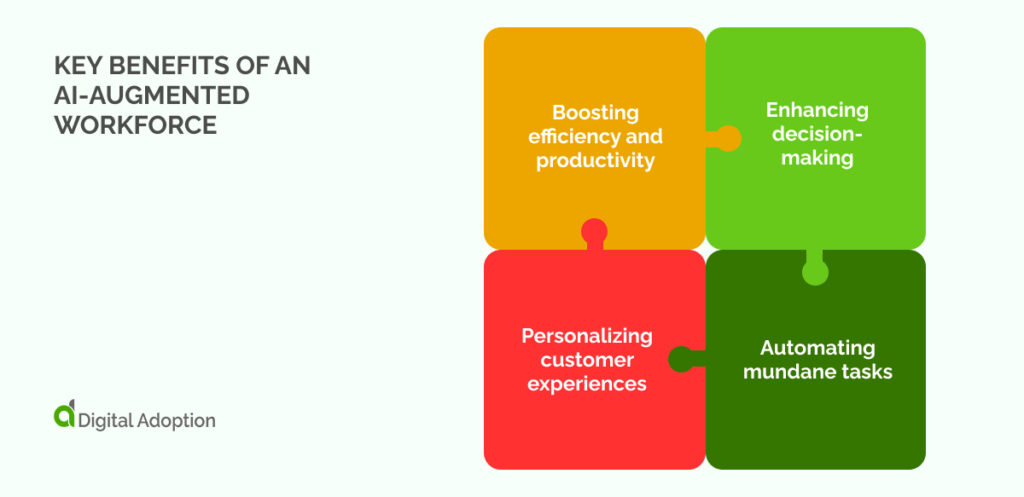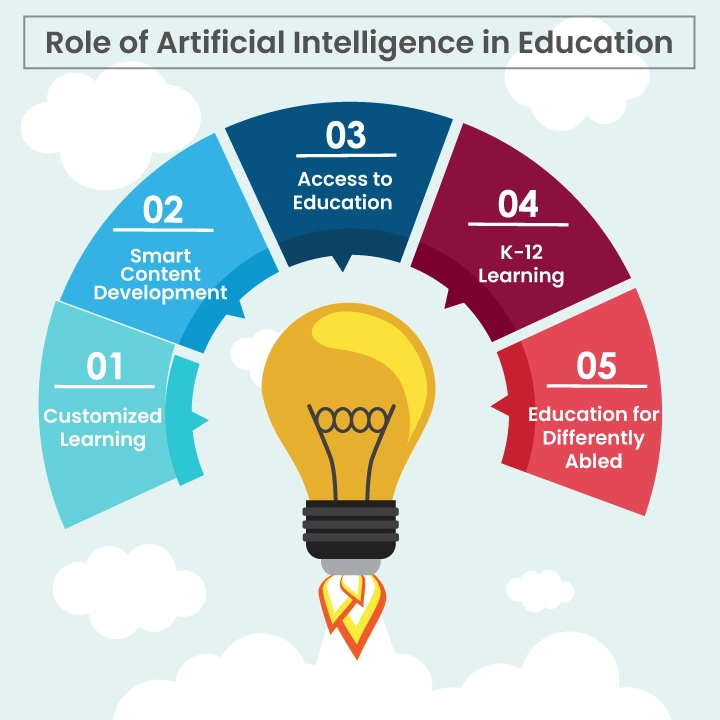In today’s fast changing technological world, artificial intelligence (AI) is a revolutionary force transforming businesses, economies, and civilizations. As we look ahead to 2025, it is critical to grasp the current status and Future of Artificial Intelligence and predict the changes it will bring, as well as prepare ourselves to harness its promise responsibly and ethically.
The Present Situation of AI
AI is currently on the verge of making significant advances. Currently, AI systems are capable of incredible feats like defeating human champions in difficult games like Go and Chess or making personalized purchasing suggestions based on user behaviour. AI-powered virtual assistants have become household mainstays, easing daily activities and enhancing user experiences.
According to an Accenture analysis, by 2026, the healthcare industry in the United States might generate up to $150 billion each year with the help of artificial intelligence in healthcare. The fundamental technology driving these advances is machine learning, a subset of artificial intelligence that allows algorithms to learn from data and improve their performance over time.
Future Projections of AI
AI-powered personalisation is expected to reach new heights by 2025. As algorithms get more intelligent, they will seamlessly comprehend individual user preferences and behaviour, resulting in highly personalised experiences across several platforms. AI will improve user interactions, and will also help with driving increased engagement and client satisfaction.
AI predictions are extremely accurate- By 2025, AI’s forecasting powers will have advanced dramatically. AI systems, with access to massive quantities of data and sophisticated algorithms, will provide very accurate forecasts in domains such as finance, weather, and even medical diagnosis. Businesses will employ AI forecasts to simplify supply chains, save costs, and make accurate data-driven decisions.
AI Augmentation improves the workforce- The incorporation of AI into the workforce will fundamentally alter how humans operate. Instead of displacing human occupations, AI will enhance human skills, allowing individuals to focus on creative and strategic tasks while AI-powered automation handles repetitive and tedious duties. This augmentation will result in a more efficient and productive staff.

AI in healthcare redefines the process of diagnosis and therapy- AI’s involvement in healthcare will be transformational during the next few years. Medical personnel will use AI techniques to better illness detection, diagnosis, and therapy planning. AI algorithms will analyse medical records, genetic data, and diagnostic pictures to deliver personalised treatment suggestions, resulting in improved patient outcomes and a more efficient healthcare system.
Ethical AI gain importance- As AI becomes more widely used, questions about ethics and data privacy will grow. By 2025, we might anticipate governments and regulatory agencies to adopt stricter limits for AI development and use. To maintain public trust and eliminate potential biases, AI systems must be transparent, fair, and accountable.
The Societal Effect of AI in 2025
By 2025, AI is expected to have a substantial influence on the labour market. Future of Artificial Intelligence in Automation can create new employment opportunities, but it can also automate many dull and repetitive tasks, potentially displacing workers in some industries. To stay up with an ever-changing labour market, the staff will need to be retrained and improved.
Ethics and Rules- As AI becomes more widely used in a number of businesses, ethics will be at the forefront of discussions. To ensure that AI is utilised fairly and responsibly, robust legislation will be required to address issues such as bias in AI algorithms, privacy concerns, and open decision-making processes.
Healthcare breakthroughs- AI is expected to revolutionise healthcare by improving diagnostics, drug development, and personalised treatment plans. It may also allow for improved patient data management and hospital operational optimisation, resulting in more effective healthcare delivery.
Educational Development- AI-powered personalised learning systems, which adjust educational content to individual students’ requirements, may become more popular in education. AI-powered evaluations may potentially give deeper insights into students’ strengths and shortcomings, allowing for more focused interventions and improved learning results. According to a World Economic Forum research, AI in education has the potential to enhance learning rates by as much as 30%.

Transport and Automatic Vehicles- The development of self-driving automobiles and autonomous delivery systems has the potential to alter transportation. By 2025, we may see the early deployment of self-driving vehicles in some areas, resulting in increased road safety and less traffic. A McKinsey report forecasts that autonomous vehicles could prevent up to 90% of traffic accidents in the United States, saving thousands of lives each year.
AI for Art and Creativity- AI-generated literary, musical, and artistic works may become increasingly widespread, raising concerns about authorship and originality. The argument over the use of AI in creative works might heat up, challenging traditional concepts of human creativity.
Climate Change & Sustainable development- AI applications may play a critical role in tackling environmental issues. AI has the potential to dramatically contribute to sustainability activities, including optimising energy use, managing natural resources, and anticipating catastrophic weather occurrences.
Social Interactions and Digital Divide- The digital gap may worsen as AI is more deeply integrated into daily life. Those who lack access to AI-powered technology may experience disadvantages in areas such as education, career possibilities, and information access.
Privacy and Cybersecurity- As AI advances, it may be both a helpful tool for improving cybersecurity and a potential threat if utilised by unscrupulous actors. Furthermore, AI-powered cyberattacks and defenses may pose new difficulties to digital security.
AI for Administration and Politics- Governments may use AI in decision-making and public services, thereby increasing efficiency and accountability. However, this may create questions about openness and bias in policy implementation.
It’s crucial to note that these are only forecasts, and the real social impact of AI in 2025 will be determined by how technology breakthroughs, ethical issues, and legislative decisions play out in the subsequent years. However, this may create questions about openness and bias in policy implementation. Ethical AI development and deployment will be critical to ensure a good and inclusive social effect.
Combating the challenges of AI
Mitigating AI problems entails resolving possible dangers and concerns connected with broad adoption and deployment of artificial intelligence. Here are some main techniques for addressing these challenges:
Ethical AI frameworks- Create and execute strong ethical frameworks for AI development and deployment. To guarantee that AI technologies are properly used, these frameworks should prioritise justice, openness, responsibility, and secrecy.
Regulation and Policy- Governments and regulatory agencies should provide clear norms and regulations. This involves establishing data usage guidelines, eliminating algorithmic bias, and determining accountability in the event of AI-related mishaps or malfunctions.
Bias Reduction- AI systems can pick up biases from the data accessible to them. To ensure fairness in AI decision-making, use varied and representative datasets, as well as methodologies such as adversarial testing and fairness-aware learning.
Comprehensible AI- Create AI systems that offer clear and interpretable reasons for their judgements. Explainable AI promotes trust in technology and allows consumers to comprehend how AI arrives at certain outcomes. Continuous oversight and Auditing
Regularly monitor AI systems to identify and correct potential biases, mistakes, and security flaws. Conduct third-party audits to guarantee adherence to ethical norms and legislation.
Human-AI Partnership- Encourage collaboration between AI systems and human expertise. Encourage AI to supplement rather than replace human talents, ensuring that human judgement and supervision remain essential in vital decision-making processes.
Safety and security- Put robust security measures in place to protect AI systems from internet threats and unauthorised access. Additionally, secure user data and privacy by following strong data protection standards.
Responsible AI Studies- Encourage and promote research that focuses on the ethical, societal, and safety implications of AI. Collaboration among academics, corporations, and government can benefit in early discovery of problems.
Increase public understanding of AI technology, its potential threats, and capabilities. The availability of pertinent knowledge has the potential to significantly alter the public’s opinions and expectations regarding AI.
The Best of Artificial Intelligence with Parangat Technologies
The Future of Artificial Intelligence in 2025 seems extremely bright, and Parangat Technologies provides the best of Artificial Intelligence with its AI-based personalisation, precise forecasts, and transformational social effects on the horizon and improved data protection while reducing its potential drawbacks. Accepting AI’s potential appropriately will lead to a future in which AI effortlessly augments human talents while improving our quality of life.
Contact Us today if you want to have access to the best uses and features of Artificial Intelligence.




